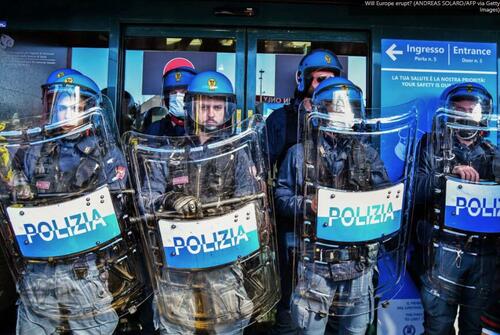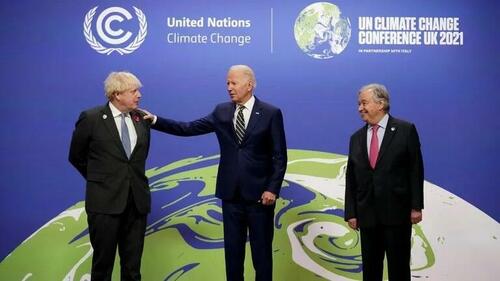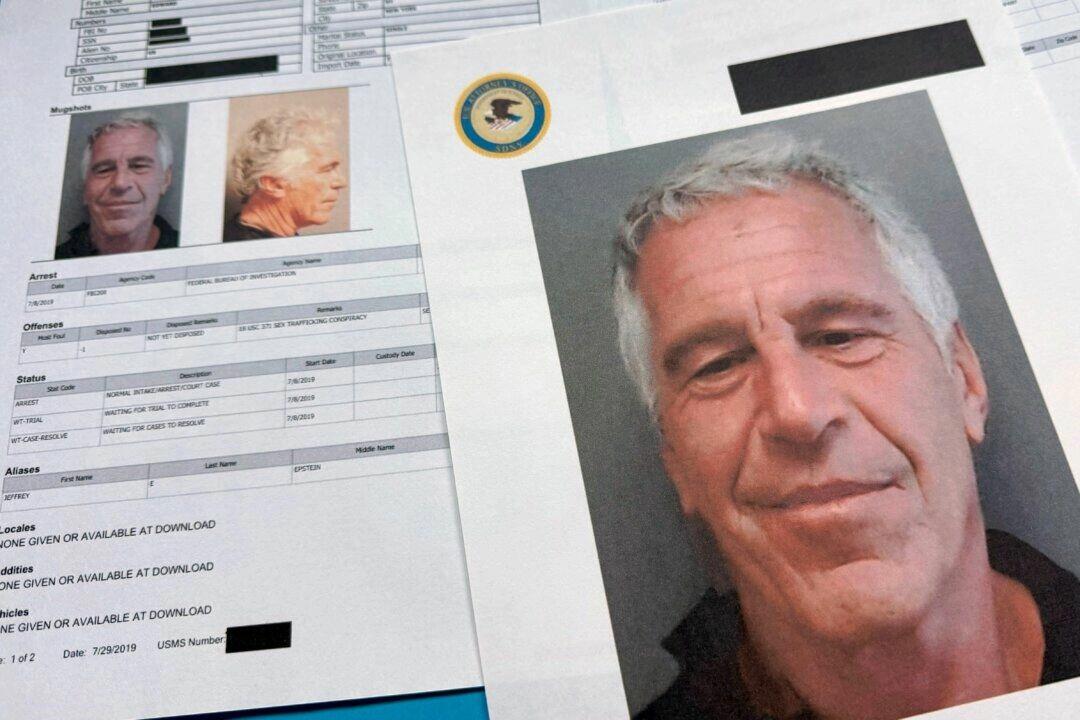(Weekend's reading) An interesting critical view of modern economic policies presented in light of ancient history. Right or wrong, the different angle to approach the subject is interesting.

Denarius of Emperor Marcus Aurelius • Port
It may seem strange to invite an economist to give a keynote speech to a
conference of the social sciences. Economists have been characterized
as autistic and anti-social in the popular press for good reason. They
are trained to think abstractly and use
a priori deduction - based on how they think societies
should develop. Today's mainstream economists look at
neoliberal privatization and free-market ideals as leading society's income and wealth to settle at an optimum equilibrium
without any need for government regulation - especially not of credit and debt.
The only role acknowledged for government is to enforce the "sanctity of contracts" and "security of property."
By this they mean the enforcement of debt contracts, even when their
enforcement expropriates large numbers of indebted homeowners and other
property owners.
That is the history of Rome. We are seeing the same debt dynamic at work today.
Yet this basic approach has led mainstream economists to insist that civilization could and should have followed this pro-creditor policy from the very beginning.
The reality is that civilization could never have taken off
if some free-market economist had got into a time machine and travelled
back in time five thousand years to the Neolithic and Bronze Age.
Suppose that he would have convinced ancient chieftains or rulers how to
organize their trade, money and land tenure on the basis of "greed is
good" and any public regulation is bad.
If some Milton Friedman or Margaret Thatcher had persuaded
Sumerian, Babylonian or other ancient rulers to follow today's
neoliberal philosophy, civilization could not have developed.
Economies would have polarized - as Rome did, and as today's Western economies are doing.
The citizens would have run away, or else backed a local reformer or
revolutionist to overthrow the ruler who listened to such economic
advice. Or, they would have defected to rival attackers who promised to
cancel their debts, liberate the bondservants and redistribute the land.
Yet many generations of linguists, historians and even anthropologists
have absorbed the economic discipline's anti-social individualistic
world view and imagine that the world must always have been this way.
Many of these non-economists have unwittingly adopt their prejudices and
approach ancient as well as modern history with a bias. Our daily
discourse is so bombarded with the insistence by recent American
politicians that the world is dividing between
"democracy" with "free markets" and
"autocracy" with "public regulation" that there is much fantasy at work about early civilization.
David Graeber and I have sought to expand the consciousness of
how
different the world was before Western Civilization took the Roman
track of pro-creditor oligarchies instead of palatial economies
protecting the interests of the indebted population at large. At the time he published his
Debt: The First Five Thousand Years in 2011, my Harvard group of assyriologists, Egyptologists and archaeologists was still in the process of
writing the economic history of the ancient Near East
in a way that was radically different from how most of the public
imagined it to have occurred. David's and my emphasis on how royal Clean
Slate proclamations cancelling debts, liberating bond-servants and
redistributing the land were a normal and expected role of Mesopotamian
rulers and Egyptian pharaohs was still not believed at that time. It
seemed impossible that
such Clean Slates were what preserved liberty for the citizenry.
David Graeber's book summarized my survey of royal debt cancellation in
the ancient Near East to show that interest-bearing debt originally was
adopted with checks and balances
to prevent it from polarizing society between creditors and debtors.
In fact, he pointed out that the strains created by the emergence of
monetary wealth in personal hands led to an economic and social crisis
that shaped the emergence of the great religious and social reformers.
As he summarized:
"The core period of Jasper's Axial age ... corresponds almost exactly
to the period in which coinage was invented. What's more, the three
parts of the world where coins were first invented were also the very
parts of the world where those sages lived; in fact, they became the
epicenters of Axial Age religious and philosophical creativity."[1]
Buddha, Lao-Tzu and Confucius all sought to create a social context in which to embed the economy.
There was no concept of letting "markets work" to allocate wealth and
income without any idea of how wealth and income would be spent.
All ancient societies had a mistrust of wealth,
above all monetary and financial wealth in creditor hands, because it
generally tended to be accumulated at the expense of society at large.
Anthropologists have found this to be a characteristic of low-income
societies in general.
Toynbee characterized history as a long unfolding dynamic of
challenges and responses to the central concerns that shape
civilizations. The major challenge has been economic in
character: who would benefit from the surpluses gained as trade and
production increase in scale and become increasingly specialized and
monetized. Above all, how would society organize the credit and debt
that was necessary for specialization of economic activities to occur -
and between "public" and "private" functions?
Nearly all early societies had a central authority in charge of
distributing how the surplus was invested in a way that promoted overall
economic welfare. The great challenge was to prevent credit leading to
debts being paid in a way that impoverished the citizenry,
e.g., through personal debt and usury - and more than temporary loss of freedom (from bondage or exile) or land tenure rights.
The great problem that the Bronze Age Near East solved - but classical antiquity and Western civilization have not solved -
was how to cope with debts being paid
- especially at interest without polarizing economies between creditors
and debtors, and ultimately impoverishing the economy by reducing most
of the population to debt dependency. Merchants engaged in trade, both
for themselves and as agents for palace rulers. Who would get the
profits? And how would credit be provided but kept in line with the
ability to be paid?
Public vs. Private Theories of How Land Tenure Originated
Ancient societies rested on an agricultural base. The first and most basic problem for society to solve was
how to assign land tenure.
Even families who lived in towns that were being built up around
temples and civic ceremonial and administrative centers were allocated
self-support land - much like Russians have dachas, where most of their
food was grown in Soviet times.
In analyzing the origins of land tenure, like every economic phenomenon,
we find two approaches. On the one hand is a scenario where
land is allocated by the community
in exchange for corvée labor obligations and service in the military.
On the other hand is an individualistic scenario in which
land tenure originated by individuals
acting spontaneously by themselves clearing land, make it their own
property and producing handicrafts or other products (even metal to use
as money!) to exchange with each other.
This latter individualistic view of land tenure has been popularized
ever since John Locke imagined individuals setting out to clear the land
- apparently vacant wooded land - with their own labor (and presumably
that of their wives).
That effort established their ownership to it and its crop yield.
Some families would have more land than others, either because they
were stronger at clearing it or had a larger family to help them. And
there was enough land for everyone to clear ground for planting crops.
In this view there is no need for any community to be involved, not even to protect themselves from miliary attack - or for mutual aid in times of flood or other problems.
And there is no need for credit to be involved
- although in antiquity that was the main lever distorting the
distribution of land by transferring its ownership to wealthy creditors.
At some point in history, to be sure,
this theory sees governments enter the picture.
Perhaps they took the form of invading armies, which is how the Norman
ancestors of landlords in John Locke's day acquired English land. And as
in England, the rulers would have forced landholders to pay part of
their crops in taxes and provide military service. In any case,
the role of government was recognized only as "interfering" with the cultivator's right to use the crop as he saw fit - presumably to trade for things that he needed, made by families in their own workshops.
My Harvard-sponsored group of assyriologists, Egyptologists and archaeologists have found
an entirely different genesis of land tenure.[2]
Land rights seem to have been assigned in standardized plots in terms of their crop yield.
To provide food for these community members, late Neolithic and early
Bronze Age communities from Mesopotamia to Egypt allocated land to
families in proportion to what they needed to live on and how much they
could turn over to the palace authorities.
This tax yield turned over to palace collectors was the original economic rent. Land tenure came as part of a
quid pro quo - with a fiscal obligation to provide labor services at designated times of the year, and to serve in the military.
It thus was taxation that created land-tenure rights, not the other way around. Land was social in character, not individualistic. And
government's role was that of coordinator, organizer and forward planner, not merely predatory and extractive.
Public vs. Private Origins of Money
How did early societies organize the exchange of crops for products -
and most important, to pay taxes and debts? Was it simply a spontaneous
world of individuals "trucking and bartering," as Adam Smith put it?
Prices no doubt would have varied radically as
individuals had no basic reference to cost of production or degrees of need.
What happened as some individuals became traders, taking what they
produced (or other peoples' products on consignment) to make a profit.
If they traveled large distances, were caravans or ships needed - and
the protection of large groups? Would such groups have been protected by
their communities? Did supply and demand play a role? And most
important,
how did money emerge as a common denominator to set prices for what was traded - or paid in taxes and to settle debts?
A century after Adam Smith, the Austrian economist Anton Menger
developed a fantasy about how and why ancient individuals may have
preferred to hold their savings in the form of metals - mainly silver
but also copper, bronze or gold.
The advantage of metal was said to be that it did not spoil (in contrast to grain carried around in one's pocket, for instance).
It also was assumed to be of uniform quality.
So pieces of metal money gradually became the medium by which other
products came to be measured as they were bartered in exchange -
in markets in which governments played no role at all!
The fact that this Austrian theory has been taught now for
nearly a century and a half is an indication of how gullible economists
are willing to accept a fantasy at odds with all historical records from
everywhere in recorded world history.
To start with, silver and other metals
are not at all of uniform quality.
Counterfeiting is age-old, but individualist theories ignore the role
of fraud - and hence, the need for public authority to prevent it. That
blind spot is why U.S. Federal Reserve Chairman Alan Greenspan was so
unprepared to cope with the massive junk-mortgage bank crisis peaking in
2008.
Wherever money is involved, fraud is omnipresent.
That's what happens in unregulated markets - as we can see from today's bank frauds,
tax evasion and crime that pays very, very well.
Without a strong government to protect society against fraud,
lawbreaking, the use of force and exploitation, societies will polarize
and become poorer. For obvious reasons the beneficiaries of these grabs
seek to weaken regulatory power and the ability to prevent such
grabitization.
To avoid monetary fraud, silver and subsequently gold coinage from
Bronze Age Mesopotamia down through classical Greece and Rome was minted
in temples to sanctify their standardized quality. That is why
our word for money comes from Rome's temple of Juno Moneta,
where Rome's coinage was struck. Thousands of years before bullion was
coined, it was provided in metal strips, bracelets and other forms
minted in temples, at standardized alloy proportions.
Purity of metals is not the only problem with using bullion money. The
immediate problem that would have confronted anyone exchanging products
for silver is how to weigh and measure what was being bought and sold -
and also to pay taxes and debts. From Babylonia to the Bible we find
denunciations against merchants using false weights and measures. Taxes
involve a role of government, and in all archaic societies it was the
temples that oversaw weights and measures as well as the purity of
metallic metals. And the denomination of weights and measures indicate
their origin in the public sector: fractions divided into 60ths in
Mesopotamia, and 12ths in Rome.
Trade in basic essentials had standardized customary prices or payments to the palaces or temples.
Taxes and debts were the most important
used for money. That reflects the fact that "money" in the form of
designated commodities was needed mainly to pay taxes or buy products
from the palaces or temples and, at the end of the harvesting season, to
pay debts to settle such purchases.
Today's neoliberal economic mainstream has created a fairy tale about
civilization existing without any regulatory oversight or productive
role for government, and without any need to levy taxes to provide basic
social services such as public construction or even service in the
military. There is no need to prevent fraud, or violent seizure of
property - or the forfeiture of land tenure rights to creditors as a
result of debts. But as Balzac noted,
most great family fortunes have been the result of some great theft, lost in the mists of time and legitimized over the centuries,
as if it were all natural.
These blind spots are necessary to defend the idea of "free markets" controlled by the wealthy, above all by creditors. This is claimed to be for the best, and how society should be run. That is why
today's New Cold War is being fought by neoliberals against socialism
- fought with violence, and by excluding the study of history from the
academic economics curriculum and hence from the consciousness of the
public at large. As Rosa Luxemburg put it,
the fight is between socialism and barbarism.
Public vs. Private Origins of Interest-Bearing Debt
Interest rates were regulated and stable for many centuries on end. The key was ease of calculation: 10th, 12th or 60th.
Babylonian scribes were trained to calculate any rate of interest as a
doubling time. Debts grew exponentially; but scribal students also were
taught that herds of cattle and other material economic output tapered
off in an S-curve. That is why compound interest was prohibited. It also
was why it was necessary to cancel debts periodically.
If rulers had
not cancelled debts, the ancient world's takeoff
would have prematurely suffered the kind of decline and fall that
impoverished Rome's citizenry and led to the decline and fall of its
Republic - leaving a legal system of pro-creditor laws to shape
subsequent Western civilization.
What makes Western Civilization Distinctly Western? Has It All Been a Detour?
Civilization could not have developed if a modern Milton Friedman or
kindred Economics Nobel Prize winner had gone back in time and convinced
Hammurabi or the Egyptian pharaoh to just let individuals act by
themselves and let wealthy creditors reduce debtors to bondage - and
then to use their labor as an army to overthrow the kings and take over
government for themselves, creating a Roman-style oligarchy. That is
what Byzantine families tried to do in the 9th and 10th centuries.
If the "free enterprise" boys had their way there would have been no
temple coinage or oversight of weights and measures. Land would belong
to whomever could grab, foreclose on or conquer it. Interest would have
reflected whatever a wealthy merchant could force a needy cultivator to
pay. But to economists, everything that occurs is a matter of "choice."
As if there is no outright need- to eat or to pay.
An economic Nobel Prize was awarded to Douglass North for claiming that
economic progress today and indeed throughout all history has been based
on the "security of contracts" and property rights
. By this he means
the
priority of creditor claims to foreclose on the property of debtors.
These are the property rights to create latifundia and reduce
populations to debt peonage.
No archaic civilization could have survived for long by following this
path. And Rome did not survive by instituting what has become
the distinguishing feature of Western Civilization: giving control of government and its lawmaking to a wealthy creditor class monopolizing the land and property.
If an ancient society had done this, economic life would have been
impoverished. Most of the population would have run away. Or else, the
Thatcherite/Chicago School elite would have been overthrown. The wealthy
families that sponsored this grabitization would have been exiled, as
occurred in many Greek cities in the 7th and 6th centuries BC. Or,
discontented populations would have walked out and/or threatened to
defect to foreign troops promising to free the bondservants, cancel
their debts and redistribute the land, as occurred with Rome's
Secessions of the Plebs in the 5th and 4th centuries BC.
So we are brought back to David Graeber's point that the great reformers
of Eurasia rose at the same time that economies were becoming monetized
and increasingly privatized - an epoch in which wealthy families were
increasing their influence over how city-states were run. Not only the
great religious reformers but the leading Greek philosophers, poets and
dramatists explained how
wealth is addictive, and leads to hubris that leads them to seek wealth in ways that injure others.
Looking over the sweep of ancient history, we can see that the main
objective of rulers from Babylonia to South Asia and East Asia was to
prevent a mercantile and creditor oligarchy from emerging and concentrating ownership of land in their own hands.
Their implicit business plan was to reduce the population at large to clientage, debt bondage and serfdom.
That is what occurred in the West, in Rome. And we are still living in the aftermath. Throughout the West today,
our legal system remains pro-creditor, not in favor of the indebted population at large. That is why
personal
debts, corporate debts, public debts and the international debts of
Global South countries have mounted up to crisis conditions threatening
to lock economies into a prolonged debt deflation and depression.
It was to protest this that David helped organize Occupy Wall Street. It
is obvious that we are dealing not only with an increasingly aggressive
financial sector, but that it has created a false history, a false
consciousness designed to deter revolt by
claiming that There Is No Alternative (TINA).
Where Western Civilization Went Wrong
We have
two diametrically opposed scenarios depicting
how the most basic economic relationships came into being. On the one
hand, we see Near Eastern and Asian societies organized to maintaining
social balance by keeping debt relations and mercantile wealth
subordinate to the public welfare. That aim characterized
archaic society and
non-Western societies.
But the Western periphery, in the Aegean and Mediterranean, lacked the
Near Eastern tradition of "divine kingship" and Asian religious
traditions.
This vacuum enabled a wealthy creditor oligarchy to take power
and concentrate land and property ownership in its own hands. For
public relations purposes, it claimed to be a "democracy" - and
denounced any protective government regulation as being, by definition,
"autocracy."
Western tradition indeed lacks a policy subordinating wealth to overall economic growth.
The
West has no strong government checks to prevent a wealth-addicted
oligarchy from emerging to make itself into a hereditary aristocracy.
Making debtors and clients into a hereditary class, dependent on
wealthy creditors, is what todays economists call a "free market." It is
one without public checks and balances against inequality, fraud or
privatization of the public domain.
It may seem amazing to some future historian that the political and
intellectual leaders of today's world hold such individualistic
neoliberal fantasies that archaic society "should" have developed in
this way - without recognizing that this is how Rome's oligarchic
Republic did indeed develop, leading to its inevitable decline and fall.
Bronze Age Debt Cancellations and Modern Cognitive Dissonance
So we are led back to why I was invited to speak here today. David
Graeber wrote in his Debt book that he was seeking to popularize my
Harvard group's documentation that debt cancellations did indeed exist
and were not simply literary utopian exercises. His book helped make
debt a public issue, as did his efforts in the Occupy Wall Street
movement.
The Obama administration backed police breaking up the OWS
encampments and did everything possible to destroy awareness of the debt
problems plaguing the U.S. and foreign economies. And not only
the mainstream media but also academic orthodoxy circled their wagons
against even the thought that
debts could be written down and indeed needed to be written down to prevent economies from falling into depression.
That neoliberal pro-creditor ethic is the root of today's New Cold War.
When President Biden describes this great world conflict aimed at
isolating China, Russia, India, Iran and their Eurasian trading
partners,
he characterizes this as an existential struggle between "democracy" and "autocracy."
By "democracy" he means oligarchy. And by
"autocracy" he means any government strong enough to prevent a financial
oligarchy from taking over government and society and imposing
neoliberal rules - by force. The ideal is to make the rest of
the world look like Boris Yeltsin's Russia, where American neoliberals
had a free hand in stripping away all public ownership of land, mineral
rights and basic public utilities.










